ARAI Certification
We at VINCULAR provide a one stop solution for all types of food license certification and FSSAI state and central license registration.

What is ARAI
Established in 1966, the Automotive Research Association of India (ARAI) is the country’s foremost automotive R&D organization, jointly established by the Automotive Industry and the Government of India. ARAI operates as an autonomous body affiliated with the Ministry of Heavy Industries, Government of India.
ARAI is entrusted with the responsibility of granting comprehensive certification and homologation services for various automotive services. As an authorized agency, it conducts thorough testing and certification of vehicles and engines used in automotive and non-automotive applications. Additionally, ARAI plays a crucial role in supporting vehicle manufacturers with export homologation activities, ensuring compliance with international standards.
ARAI is entrusted with the responsibility of granting comprehensive certification and homologation services for various automotive services. As an authorized agency, it conducts thorough testing and certification of vehicles and engines used in automotive and non-automotive applications. Additionally, ARAI plays a crucial role in supporting vehicle manufacturers with export homologation activities, ensuring compliance with international standards.
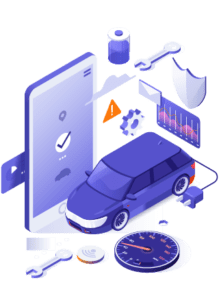
ARAI CERTIFICATION Eligibility for Different Vehicle Categories
In India, it is mandatory for the following categories of vehicles to obtain the ARAI Certificate:
Two wheelers: ARAI Certificate is applicable to the following types of two-wheelers:
Petrol / Diesel / CNG / LPG vehicles of engine capacity more than 25 cc
Electric vehicles have power of more than 250 W and have a maximum design speed of more than 25 kmph.
Petrol / Diesel / CNG / LPG vehicles of engine capacity more than 25 cc
Electric vehicles have power of more than 250 W and have a maximum design speed of more than 25 kmph.
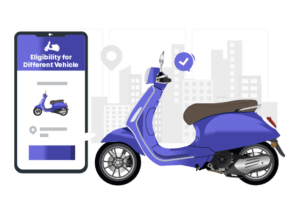
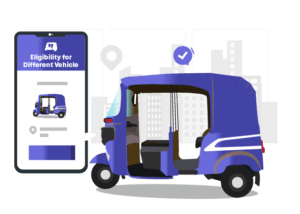
Three-wheelers: ARAI Certificate is applicable to the following types of three-wheelers:
Passenger or goods carriers
Fully built vehicles,
An incomplete vehicle in the form of Drive Away Chassis
Petrol / Diesel / CNG / LPG vehicles of engine capacity more than 25 cc
Electric vehicles have power of more than 250 W and speed of more than 25 kmph.
Passenger or goods carriers
Fully built vehicles,
An incomplete vehicle in the form of Drive Away Chassis
Petrol / Diesel / CNG / LPG vehicles of engine capacity more than 25 cc
Electric vehicles have power of more than 250 W and speed of more than 25 kmph.
Four-wheelers: ARAI Certificate is applicable to the following types of four-wheelers:
Passenger or goods carriers
Fully built vehicles
Incomplete vehicle in the form of Drive Away Chassis
Petrol / Diesel / CNG / LPG vehicles of engine capacity more than 25 cc
Electric vehicles
Passenger or goods carriers
Fully built vehicles
Incomplete vehicle in the form of Drive Away Chassis
Petrol / Diesel / CNG / LPG vehicles of engine capacity more than 25 cc
Electric vehicles

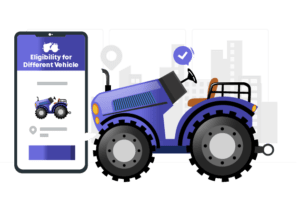
Agricultural Tractor: Agricultural tractors extend beyond their traditional use in fields or farms and are also utilized as a mode of transportation. As a result, Agricultural Tractors are included under the ambit of the Central Motor Vehicle Rules (CMVR).
Construction Equipment Vehicle (CEV): Construction Equipment Vehicles are primarily non-transport vehicles, with road usage being secondary. To ensure compliance with road regulations, the Central Motor Vehicles Rules outline specific design, safety, and emission requirements for these vehicles.
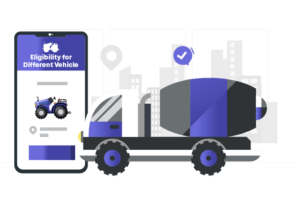
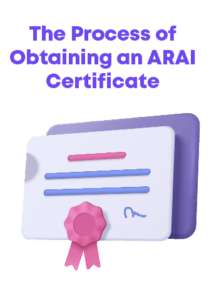
The Process of Obtaining an ARAI Certificate:
First, identify the engine or model family of the vehicle according to the guidelines specified in ISO 8178-7. However, the final decision regarding the engine and family determination rests with the authorized agency.
The supplier is required to apply for Type approval from the certification agency, as prescribed in Rule 6 of GSR 771(E) and amendments vide GSR 232(E). This certification is necessary to verify the manufacturer’s Conformity of Production (COP).
Next, the applicant completes the application form for type approval based on the vehicle type, following Annexures-II and V. The application form must include all the necessary details such as the parent model, test results, etc.
Subsequently, the certification agency examines the application form to determine the family, parent model, and other variants based on the provided details.
Once the details are determined, the certification authority proceeds to test the parent model.
Furthermore, for the submitted type approval application, the certification authority/agency verifies whether it belongs to the family of an already certified model or not.
To assess the emission level, the certification authority/agency requests a sample of the engine for testing.
If the supplier’s engine successfully passes the testing, the Type approval certificate (ARAI Certificate) is then granted to the applicant.
The supplier is required to apply for Type approval from the certification agency, as prescribed in Rule 6 of GSR 771(E) and amendments vide GSR 232(E). This certification is necessary to verify the manufacturer’s Conformity of Production (COP).
Next, the applicant completes the application form for type approval based on the vehicle type, following Annexures-II and V. The application form must include all the necessary details such as the parent model, test results, etc.
Subsequently, the certification agency examines the application form to determine the family, parent model, and other variants based on the provided details.
Once the details are determined, the certification authority proceeds to test the parent model.
Furthermore, for the submitted type approval application, the certification authority/agency verifies whether it belongs to the family of an already certified model or not.
To assess the emission level, the certification authority/agency requests a sample of the engine for testing.
If the supplier’s engine successfully passes the testing, the Type approval certificate (ARAI Certificate) is then granted to the applicant.
In case of failure in the test, the engine is required to be modified, repaired, or replaced within 3 months, or else the applicant will have to submit a new application again.
Timeline: The ARAI Certifications are often granted by Indian manufacturers in one month and by overseas manufacturers in two months.
Validity: Type Approval Certificate is valid for 5 years from the date of its issue.
Timeline: The ARAI Certifications are often granted by Indian manufacturers in one month and by overseas manufacturers in two months.
Validity: Type Approval Certificate is valid for 5 years from the date of its issue.

